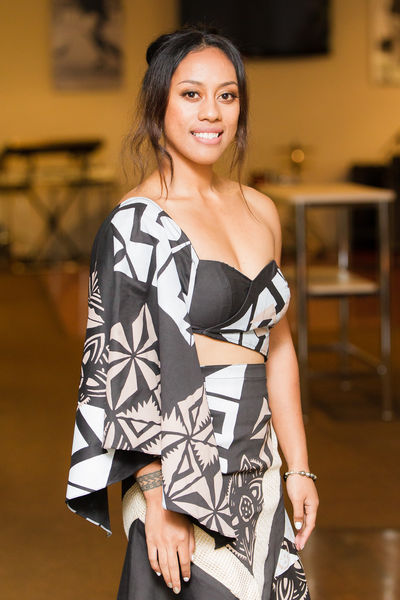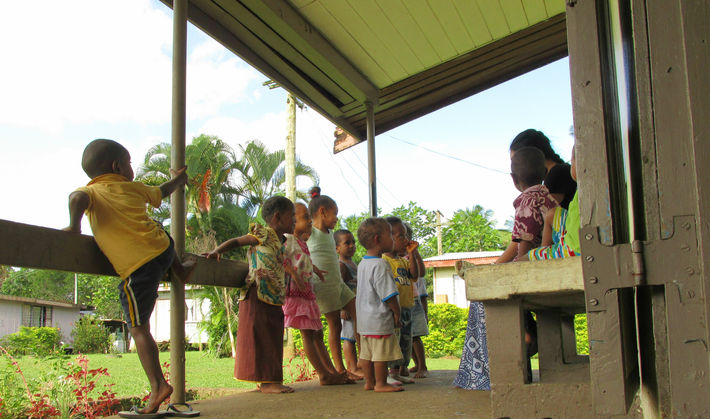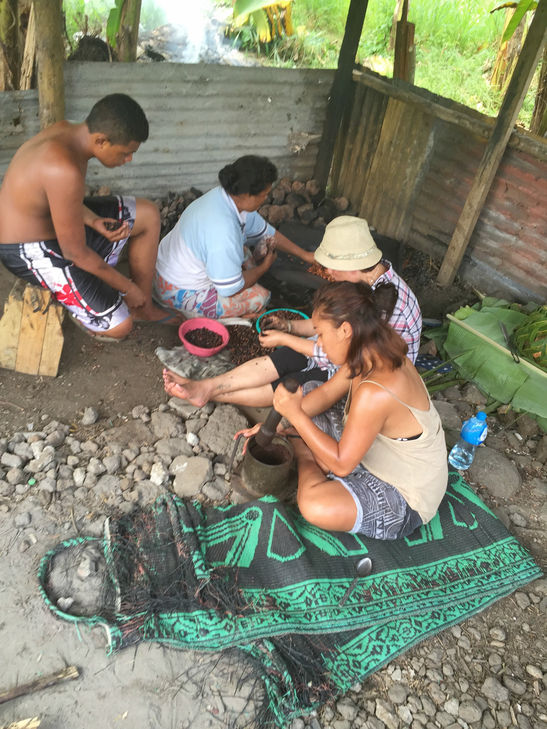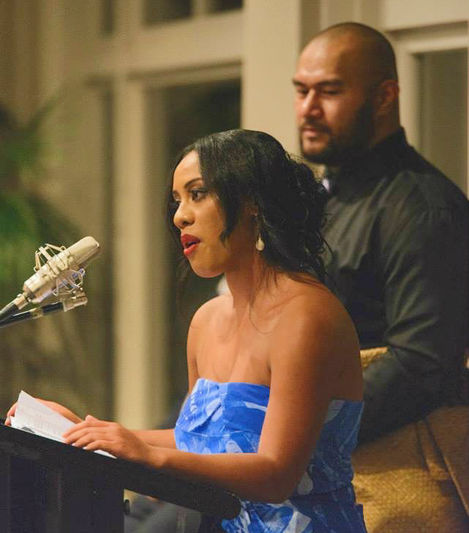Humans Of The Islands - Mary Tiumalu

Mary Tiumalu
25 years old
Samoan
I was born and raised in Waterview, in Auckland. I’m the youngest of four children and I came from a working class family. My upbringing, my childhood was probably the best time of my life. Obviously because we were from a working class family and my parents had their own struggles but they never showed that to us as young kids. We never thought that we were struggling financially. We had a roof over our heads, we got to play outside. You know, once in a while we had steak and my Dad would come home on his pay day with a Snickers bar for all of us (laughs). So we never really thought that we were struggling. They provided us with a really good home environment.
Can you talk about some of the work you have done in the Pacific region?
I won the Prime Minister’s Pacific Youth Awards and I had to sit on the money that was awarded to me for awhile because I really had to think about using it in a way that was going to be meaningful for me. I ended up flying to Suva, Fiji and I spent five weeks there working for a non govermental organisation called Save the Children. I did policy work there just looking at their laws and trying to see where there might be gaps in the laws which meant that there wasn’t full protection for all the kids in remote islands and other parts of Fiji. I did a bit of work in the local community trying to teach kids things about positive discipline and so that was a whole new experience, you know. Being Samoan and learning how to communicate and interact with kids in Fiji.

Mary working with children in Fiji.
I went to a few different UNICEF conferences and did work for the LGBT community in Fiji. Just a whole range of different things and it just really sort of opened my eyes in terms of what you could do out there in the Pacific Islands.
What was the most eye opening experience for you during that time that you were on the ground working in the region?
I just really respected the people - you know the people that were working day in, day out, long hours. It was eye opening to see their level of work ethic. They don’t really have much but are making the most of the resources that they have. In New Zealand we have so many resources around us. There’s literally no excuse out there for our youth to not go out there and pursue and do well. Whereas in the place that I was working in, they didn’t have all the means but they worked with what they had. And so, seeing that was a huge eye opener for me in terms of how I wanted to pursue my career in New Zealand.

What’s the biggest challenge you’ve faced in your life journey so far?
Just being positive and trying to keep telling myself that I am smart and that I can be a leader and influence change, that I’m in a good position in my life. For me now, as a 25 year old being able to overcome my own personal insecurities and being able to recognise yourself as a leader was a huge challenge to overcome.
Pacific Women in New Zealand are at the lower end of the privileged scale in many spheres - the wage rates, health and other opportunities like educational achievement in New Zealand - is that something that challenged you in terms of finding your identity and security as a woman here?
Yes, I think for me now, I see a lot of youth struggling with those insecurities and fears. But I think the people I surrounded myself with sort of impacted the way that I see things. It wasn’t always difficult. Like, my mum - I didn’t have to look far to be inspired by her. You know, my mum walked blocks for her education just to ensure that mine was right at my feet. She is one of my close friends and mentors in my life and teaches me what it means to be a Samoan woman in this day and age. I had people around me in my life that just reminded me about these small little things that helped me overcome any fears or insecurities I may have had as a young girl.
My mum talks about how she came here from the islands, even my Dad talks about it. Their whole generation came you know and today, in this day and age - I have always been taught to water those seeds that they planted and from there the blessings fall when you water what was gifted to you in terms of opportunities. That’s important for me, because my mum and Dad always encouraged me to remember where I’m from and to keep pushing forward.

By Indira Stewart
Suggested Links:
